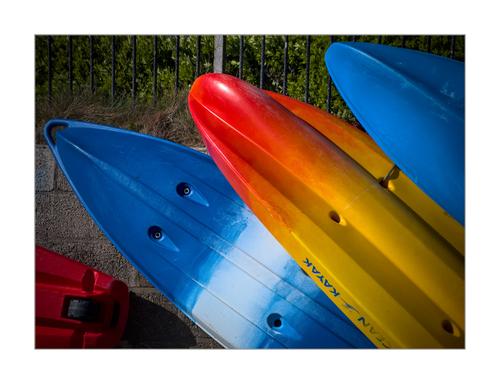What's the difference between a photo and a painting? I would argue that painting requires more skill and more time than taking (and processing) a photo, but, in terms of the end result, what's the difference? After all, paintings can be made to be hyper-realistic, and photos can be processed in a way to look like a camera was never used.
The AI response to the question in a google search was:
Photography and painting, while both visual art forms, differ significantly in how they capture and present reality. Photography, generally, is a representational art form, capturing a specific moment in time with a mechanical device, while painting allows for more artistic interpretation and manipulation of light, color, and form, often with abstract or impressionistic possibilities.
I agree that they differ significantly in how they "capture reality", but how they "present reality" is entirely up to the artist/photographer based on how they paint / process the photo, and both could accomplish the same as the other (given enough time and assuming they had the skills to do so). So, I'm going to have to disagree with the AI response.
If I were asked the question, I would say that in most cases, photography is a quick way to record "reality" (much quicker than painting a realistic scene and requiring significantly less skill) with the intent to record (and/or present) a scene that actually happened/existed. Photography can be used to present the surreal and/or abstract, but, in general, it isn't used that way, just as paintings can be used to present something "real", but usually aren't. Even a painter sitting with paints and a canvas painting a scene isn't trying to paint something "real" -- they'd just use a camera for that. Rather, they're trying to paint a scene based on reality. Photographers, on the other hand, are typically (but not always), trying to take and present a photo of something real in a realistic (albeit often embellished) manner.
To this end, I googled the following Landscape Photo and Landscape Painting. For me, the photos, despite processed in a way that was not "realistic" in the sense that the scene would look like that if you were there, were significantly more appealing than the paintings because they looked more realistic. But if they were "too real", they would lose much of their "artistic appeal".
That's but one example, of course. I could do the same with portraits, street scenes, etc.. But I'm thinking that, on the whole, I would prefer the photos because they are "more realistic". Not every time, of course, but mostly. Others, of course, would prefer the paintings because, for example, they "capture the essence of the scene without distraction", or something like that (I'm not good at art, either in creating it or talking about it, so apologies if I sound disparaging with regards to paintings -- that's not my intent).
So, what do y'all think?









